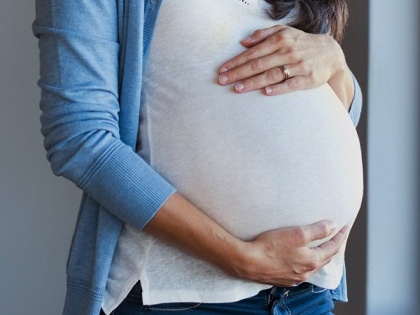Pregnancy Accelerates Biological Aging in Women, Study Finds
By Lokmat English Desk | Published: April 24, 2024 12:15 PM2024-04-24T12:15:56+5:302024-04-24T12:17:23+5:30
A new study published in the Proceedings of the National Academy of Sciences has unveiled intriguing findings regarding the ...

Pregnancy Accelerates Biological Aging in Women, Study Finds
A new study published in the Proceedings of the National Academy of Sciences has unveiled intriguing findings regarding the effects of pregnancy on women's biological ageing. Researchers have discovered that women who have undergone pregnancy may display increased signs of ageing compared to their counterparts who haven't experienced childbirth. Furthermore, the study indicates that the ageing process may be accelerated in women who have had multiple pregnancies. These findings shed light on the complex interplay between reproductive history and the ageing process in women.
According to a report of India Today, “We’re learning that pregnancy has long-term effects on the body. They are not all bad, but it seems to increase the risk of some diseases and all-cause mortality," Calen Ryan, associate research scientist at the Columbia University Ageing Center at the Mailman School of Public Health, who led the new research, said.
A recent study conducted on 1,735 individuals in the Philippines, all within the age range of 20 to 22 in 2005, drew upon data from the Cebu Longitudinal Health and Nutrition Survey. This extensive research effort involved not only the analysis of blood samples but also a thorough investigation into the participants' reproductive and sexual histories, including detailed records of pregnancies. Moreover, the study meticulously accounted for socioeconomic and pollution-related factors that could potentially influence the ageing process in both men and women. The blood samples underwent rigorous analysis to explore various biological indicators associated with ageing, notably focusing on DNA alterations known as epigenetic modifications.
As cells progress through their lifecycle, they accumulate molecular imprints denoting the activation or deactivation of specific genes. These modifications serve as crucial indicators of the biological age of cells.
Termed "epigenetic clocks," these markers serve as a valuable tool in gauging cellular ageing. They not only offer insights into the intrinsic ageing process but also reflect the impact of various factors, including stress and other physiological or psychological experiences, on cells. Consequently, cells may exhibit an apparent age that differs from their chronological age due to these influences.
While medical professionals have highlighted the potential for accelerated ageing in women who have experienced pregnancy, they have also tempered expectations regarding the notion of age reversal. Dr Chetna Jain, director - department of obstetrics and gynecology, Cloudnine Group of Hospitals, Sector 14, Gurgaon, said, “It's important to consider what we mean by ‘ageing’ at a biological level. Ageing involves a gradual decline in cellular function and physiological processes over time, which can lead to increased susceptibility to diseases and an overall decline in health. Factors such as genetics, lifestyle, and environmental influences play significant roles in determining the rate at which an individual ages.”
Open in app